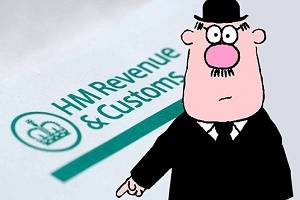DIRECT TAXES: These types of tax include Capital Gains Tax, Corporation Tax, and Income Tax.
The first step is to appeal against a direct tax decision by HM Revenue and Customs. Follow that by writing to the same HMRC office that sent the decision. You should inform them:
- The reason why you feel the amount charged is too high.
- What you consider to be the correct amount and when you intend to pay it.
Note: HMRC office will confirm in writing if they agree the calculation and payment date.
Appealing against a Penalty
If the appeal gets made against a penalty it does not need to get paid until after any appeals get settled.
Indirect Taxes
The process is a little different for HMRC to review an indirect tax decision. These would include Insurance Premium Tax or Value Added Tax. In these case there is no need to pay until after the review gets completed.
But, in most cases, an appeal to the tax tribunal means you have to pay the tax before they will hear the appeal. The rules allow you to request delay paying the tax.
A valid reason for delaying a payment could be in cases of extreme financial difficulty. Examples might include business liquidation or bankruptcy. But, you must pay any money owed and in full (including any interest) after a final decision gets made.
Appealing against a Penalty
The process is similar after asking for a review or appealing to the tribunal about a tax penalty. In both cases HMRC will not need a payment until the appeal gets settled.
Dispute HM Revenue and Customs Decision
Note: What if you still disagree with the outcome? In this case you can make a request for the decision to get reviewed.
 Giving ‘Reasonable Excuses’
Giving ‘Reasonable Excuses’
You may need a ‘reasonable excuse‘ to appeal against a tax penalty handed out by HMRC.
Having reasonable excuses might be justification for sending late returns or payments.
What HMRC Count as a Reasonable Excuse
As a rule, HMRC define a reasonable excuse as “something that stopped you meeting a tax obligation that you took reasonable care to meet”. Examples of what may count as reasonable excuses include:
- You had a computer or software failure before or while preparing an online return.
- Service issues ‘downtime and technical problems‘ with HM Revenue and Customs online services.
- A disaster such as heavy flooding, fire, or a theft prevented you from completing the tax return.
- Unforeseeable postal delays that you encountered and could not have predicted.
- Difficulties leading to delays caused by a disability that you have.
- An unexpected stay inside a hospital prevented you from dealing with the tax affairs.
- You suffered a serious illness or life-threatening situation.
- Your partner (or close relative) died shortly before the deadline for the tax return or payment.
Note: Once the reasonable excuse gets resolved you must send the return or payment without any delay.
What HMRC Will Not Count as a Reasonable Excuse
As a rule, these excuses will not count to delay payments while appealing against a tax decision:
- You did not receive a reminder from Her Majesty’s Revenue and Customs.
- You found the online system at HMRC confusing and too difficult to use.
- You were relying on another person to send the return and they failed to send it.
- It happened because you made a mistake on the tax return.
- The payment failed because the cheque you sent bounced or you did not have sufficient funds to pay it.

